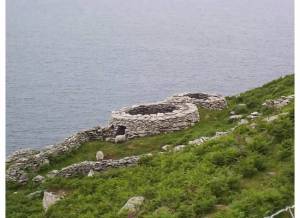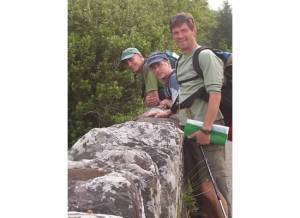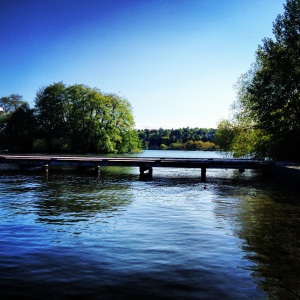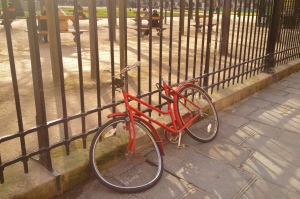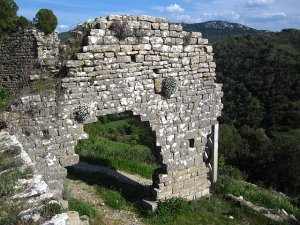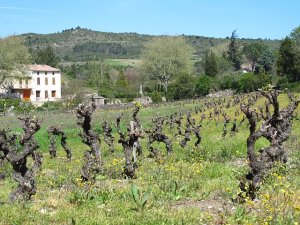1) I fear driving at night. Sweaty palms, racing heart, clenched stomach fear. I'm not a fan of driving in general; how I managed four years as a study abroad road warrior cruising the freeways of northern and southern California, Colorado, Washington, Arizona and several states that start with an "I" in search of institutions of higher education - all in the days before GPS and the Mapquest Lady - baffles me. Who was that intrepid chick in the rented Ford Focus, clutching printed Google driving directions to the steering wheel, hopping across the Bay Bridge en route from the Academy of Art in San Francisco to Cal-Berkeley? That's right. Yo. Screwing my courage to the sticking place, I registered for an evening information session about an MFA in Creative Writing offered by a local university. It was the last session before the early February application due date. The session was held way the crap north of Seattle, in the suburban hinterlands beyond the tip of Lake Washington. At night. You got that part, right? Rain showers. I gave myself an hour to get there. I'd planned for rush hour traffic, but silly me, I forget that Seattle drivers are touchingly unaccustomed to driving in the rain. Because, you know, it's such a RARE occurrence here. I also hadn't planned for the thirty-seven Metro buses which apparently had the same destination as mine. The drivers took great glee in pulling out in front of me at every opportunity, then stopping. The confused and snotty Mapquest Babe took equal pleasure in shouting from my iPhone: "Make a slight left onto Lake City Boulevard. NOW!" I could hear the smirk in her voice as she occasionally muttered "Recalculating." Ironic Bitch.
I don't do "Late." Teutonic blood runs thick in my veins. I do "Early" and "Stinkeye at people who can't organize themselves to be on time, the fools." By the time my trembling hands turned the steering wheel into a parking space, I was fifteen minutes into stinkeye territory. Then I realized I had the correct general location, but the wrong end. Back into the car, I flipped a U-turn (and a finger at Mapquest Bimbo), found where I thought I should be, had a minute of indecision whether to pay for parking, got the parking spot number wrong (it was dark, it was raining), finally got the pass attached to my window... Christ, I am so late. Then I pulled a Quasimodo limp-run up a hill and three flights of stairs. Did I mention I'd run a half-marathon on Sunday, in total pain, on a bum right leg? No? Well, it hurts to walk. Hurrying brings tears. At this point it was closing in on 30 minutes past the hour. Perhaps there would be enough people there that if I did happen to apply to the program, my crashingly late entrance wouldn't be remembered.
Two women were seated at the tables arranged in a square in the large art studio: the academic director of the MFA and the program's administrative manager. Just waiting. On me.
Forty-five minutes later I floated out of the building while visions of sugar-plum seminars and symposia danced in my head. The drive home was peaceful; I sang along to The Head and the Heart. I knew my route home, so I muffled the Mapquest Wench. Even the rain eased to a sparkling mizzle.
In the cold light of the following day I knew the whole proposition was folly. What the heck would I do with an MFA? Provided I could pay the tuition. Provided I had more than a snowball's chance in hell of being admitted.
2) I swam that afternoon. Sitting in the parking lot of the Queen Anne Aquatic Center, smelling like chlorine and hair conditioner, I checked e-mail. There, in the little inbox displayed on my phone's screen, was a subject line which read "Your fiction submission." Great. Rejection. Bring it on. I'm curating a personal collection.
The opening word of the message's body was "Congratulations." People. Who needs the winning Powerball Lottery ticket when they have a publication acceptance from a national literary magazine? I write because I don't know what else to do with stories that press at my heart. But I submit my writing because I believe as Priscilla Long does: the story is not finished until you have attempted to share it with the world.
3) Saturday I attended the semi-annual Write-O-Rama at Seattle's Richard Hugo House. This is a day-long series of writing workshops with super-serious writerly themes like Genre Variant: Essays & Found Material and less serious but equally compelling topics such as Build a Killer Author Platform. You listen, discuss and write in hour-long blasts that challenge, engage, terrify and inspire. Most sessions have one or several periods when attendees write to a prompt(s) and opportunities to read their work to the class. This was my fourth Write-O-Rama in two years and I think I might be getting somewhere with output and courage.
I have never written easily on demand. I freeze, my mind a sheet as white as my face. Spontaneity is not my strong suit. Remember that Teutonic blood? Deliberative, thy name is Julie. Yet, because I'm now in the habit of timed, non-stop writing every morning on my manuscript, either freely - to work on a scene, or to a prompt - to generate new material, I found the challenge of writing in the fast and furious atmosphere of Write-O-Rama playful instead of Purgatory. I could write without lifting my pen to stare into space or to run a thick line through the drivel I'd just penned. No, I wrote with confidence and purpose, accepting the silliness and magic that is birthed in the pressure cooker of a group write. I even sucked it up and read a few pieces aloud. I'm sure my voice trembled and my face flushed, but who cares? My street cred was tucked away in my bag, on my phone, where an e-mail read "Congratulations."
That MFA? The classes are held at night.
The Things That Come In Threes.
